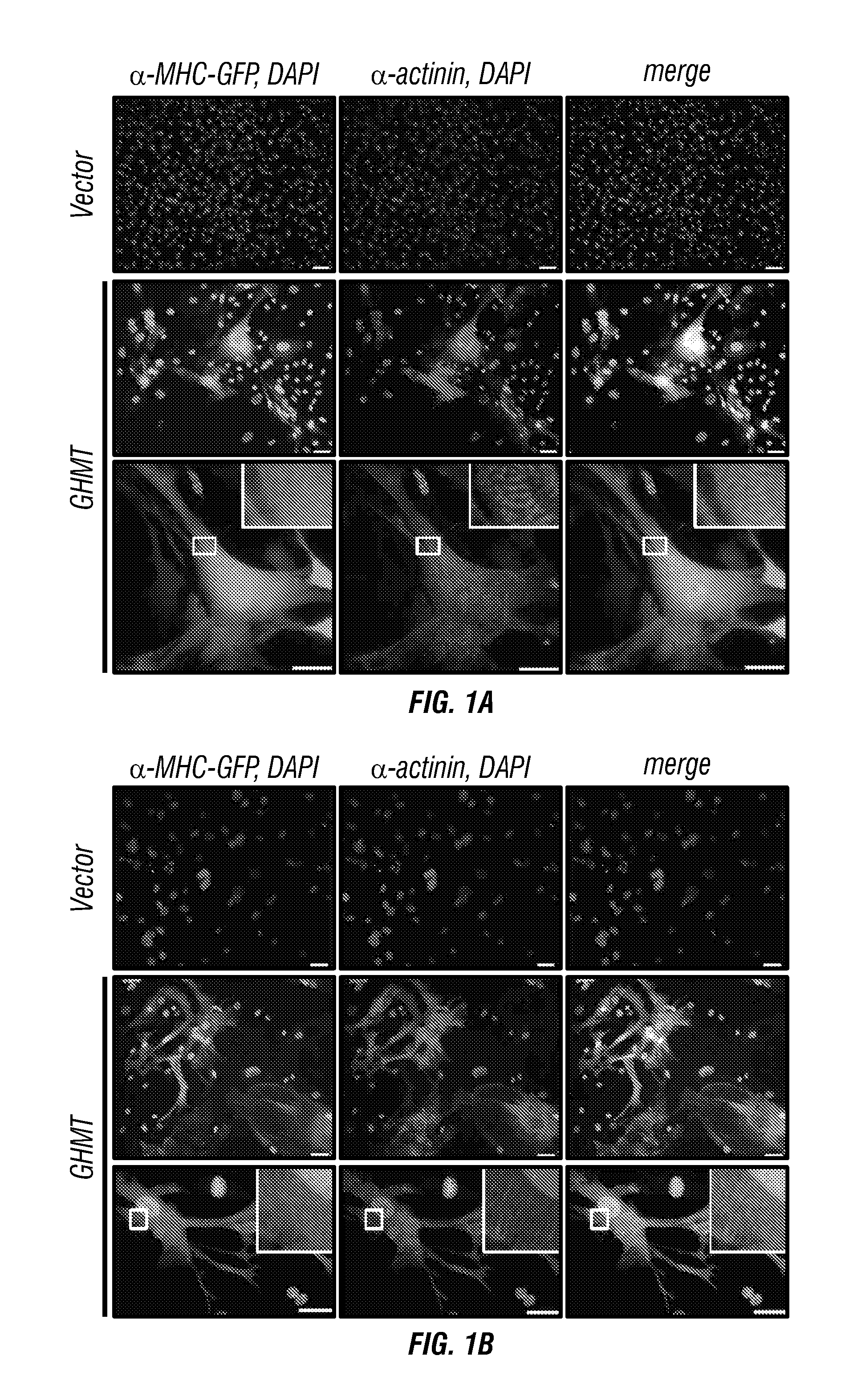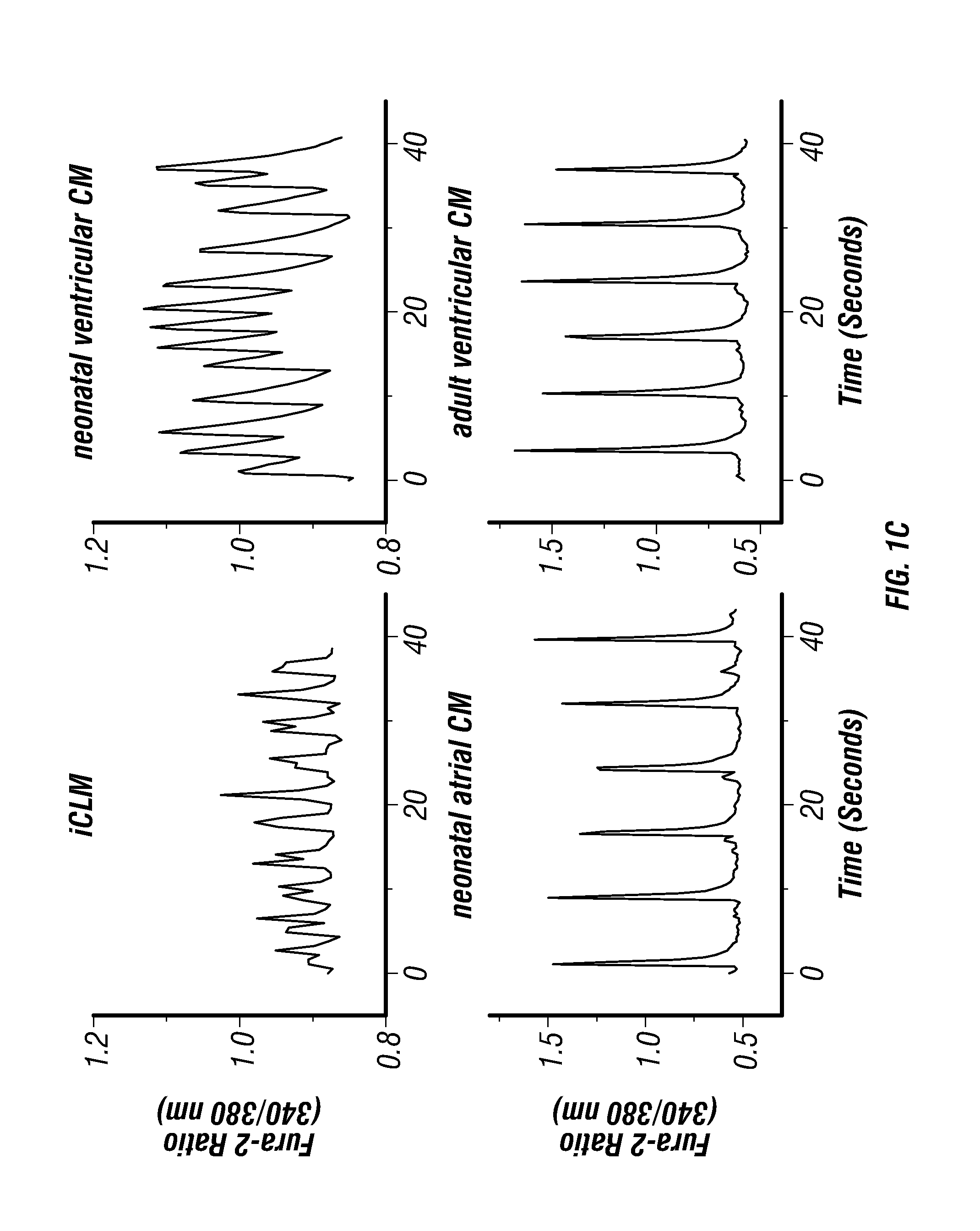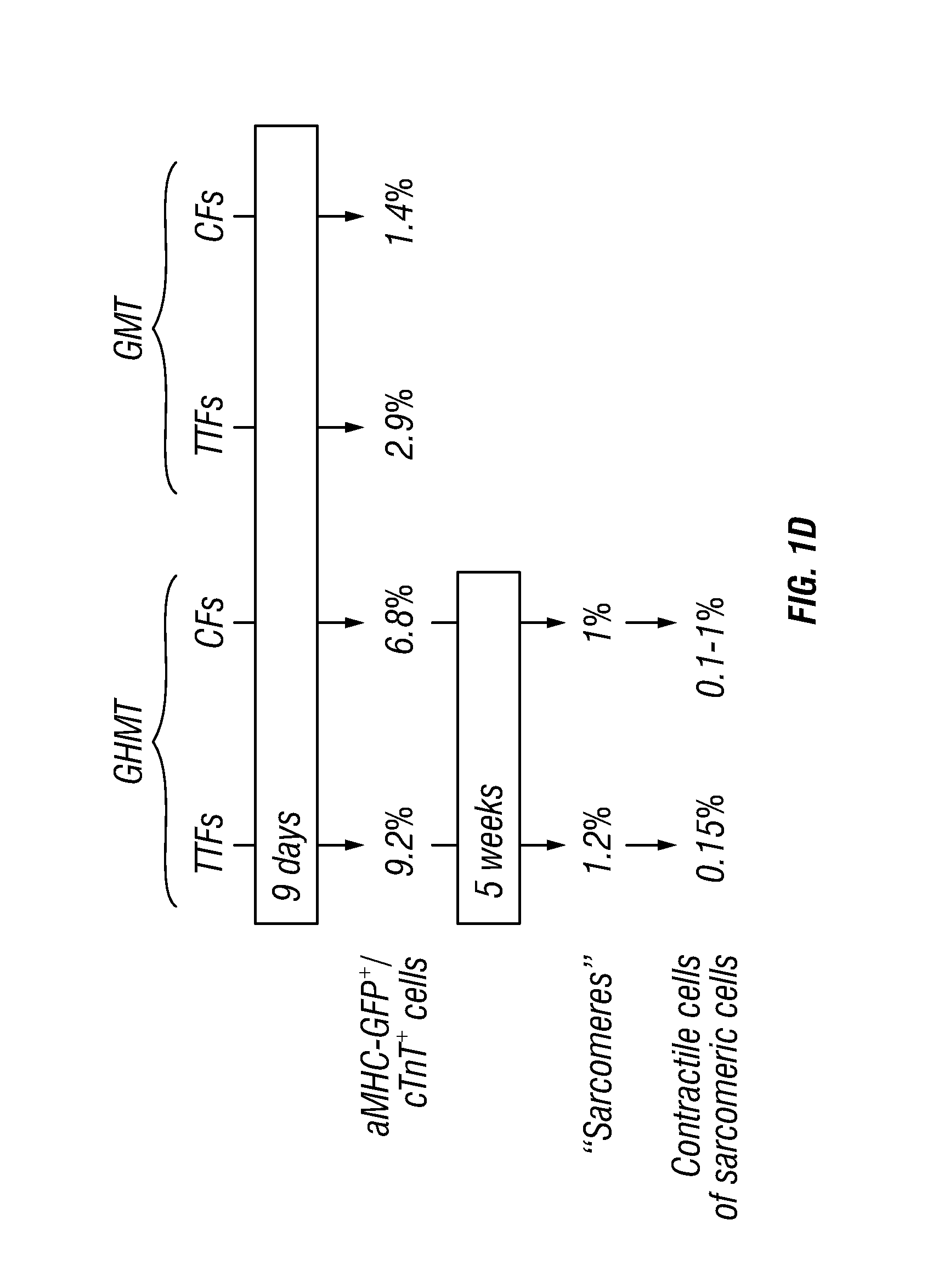Cardiac repair by reprogramming of cardiac fibroblasts into cardiomyocytes
a cardiomyocyte and fibroblast technology, applied in the field of cardiac disease, can solve the problems of damage or death of heart muscle tissue (myocardium), and increasing mortality in the setting of nstemi
- Summary
- Abstract
- Description
- Claims
- Application Information
AI Technical Summary
Benefits of technology
Problems solved by technology
Method used
Image
Examples
example 1
Methods
[0270]Adult TTFs and CFs were isolated by an explanting method in which fibroblasts migrate from minced tissue and grow in fibroblast growth medium. Fibroblasts were transduced with a mixture of polybrene (Sigma; 6 μg / ml) and fresh retroviruses expressing transcription factors, made from Platinum E cells (Cell Biolabs). Twenty-four hours after viral transduction, the viral medium was changed to a cardiac induction medium. The medium was changed every two days. Expression of cardiac genes was analyzed by flow cytometry, real-time PCR, and immunocytochemistry. Adult mice, 8-10 weeks old, underwent either a sham operation or ligation of the LAD at 1.5 mm distal to the left atrial appendage. Concentrated retroviruses (˜108 pfu viruses) were injected into the border zone using a gastight 1710 syringe (Hamilton). Cardiac function was assessed using echocardiography and hearts were harvested from euthanized animals for histological studies. Isolation of adult cardiomyocytes, electro...
example 2
Results
[0295]A core set of evolutionarily conserved transcription factors (GATA4, HAND2, MEF2, MesP1, Nkx2-5, and Tbx5) controls cardiac gene expression and heart development (Olson, 2006; Wu, 2008). Recently, GATA4, MEF2C, and Tbx5 were reported to be capable of converting fibroblasts to cardiomyocyte-like cells in vitro7. The inventors sought to define the optimal combination of core cardiac transcription factors necessary and sufficient for reprogramming of fibroblasts into beating cardiac-like myocytes and to determine if these factors could restore cardiac function to injured hearts through reprogramming of endogenous cardiac fibroblasts to cardiomyocyte-like cells in vivo. Toward this goal, the inventors generated retroviruses to express each of the six core cardiac transcription factors (GATA4 (G), and HAND2 (H), MEF2C (M), MesP1 (Ms), Nkx2-5 (N), and Tbx5 (T)) in fibroblasts derived from mice bearing a cardiac-specific αMHC-GFP transgene (FIGS. 5A-D and 6).
[0296]Potential ca...
PUM
 Login to View More
Login to View More Abstract
Description
Claims
Application Information
 Login to View More
Login to View More - R&D
- Intellectual Property
- Life Sciences
- Materials
- Tech Scout
- Unparalleled Data Quality
- Higher Quality Content
- 60% Fewer Hallucinations
Browse by: Latest US Patents, China's latest patents, Technical Efficacy Thesaurus, Application Domain, Technology Topic, Popular Technical Reports.
© 2025 PatSnap. All rights reserved.Legal|Privacy policy|Modern Slavery Act Transparency Statement|Sitemap|About US| Contact US: help@patsnap.com



